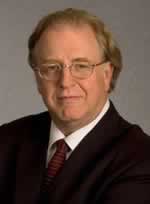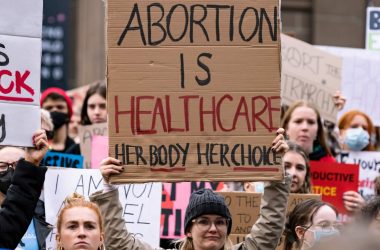
Commentary
By Gene Policinski
First Amendment Center vice president/executive director
Vocal public protest has a place in American history that began before there was American history.
But as the national debate over health care rages on, the First Amendment’s guarantees of free speech and the rights of assembly and petition have been tested and challenged in recent days, from Main Street to Pennsylvania Avenue to the electronic highway that is the Internet.
A decade and more before the Declaration of Independence, a Colonial group that came to be known as the Sons of Liberty gathered in 1765 around an elm near the Boston Commons to protest Britain’s Stamp Act. They met and protested — even hanging in effigy at least one government appointee, appointed by the Crown to enforce the noxious tax on all things printed.
In the process, they created a symbol — the Liberty Tree — and helped set forth the idea that protest is an accepted, integral part of the way the soon-to-be nation would debate big ideas and express complaints with government policy. In 1791, protest was protected by the First Amendment, which provided for freedom of expression in voice and print and for the right to peaceably assemble and petition the government for “redress of grievances.”
In more modern times, we have filled the streets in support of women’s suffrage, civil rights and lower taxes, and to protest war, poverty, abortion, injustice — and a whole variety of administration policies both Democratic and Republican.
In the past week or so, across the nation vocal protesters, angry over White House policies on the economy, health-care reform and other subjects, have shouted down members of Congress and others at local town-hall meetings.
A presidential town hall yesterday in New Hampshire avoided such a flare-up, but the Obama administration walked into another kind of flap — over its request that citizens report those spreading misinformation about its health-care proposals. The invitation to report so-called “fishy” e-mails and info stirred memories for the Watergate generation of Richard Nixon’s infamous “enemies list.”
Much of the political debate about disruptions at meetings has been over whether or not the outbreak of outbursts was spontaneous or organized. And Obama spokesmen have defended the call for information about misinformation, saying the plan is just to counter incorrect facts, not attack or track the speakers.
But those reactions miss the First Amendment point — widely.
The marketplace of ideas requires that the most unpopular advocates have the same right to speak out as those with the greatest public acceptance — and that no group has the right or power to do so at others’ expense.
Freedom of assembly and of petition free from government’s heavy hand are not the province of just those deemed factually correct. And government can chill free expression and political protest by “taking names,” or even just appearing to do so. As a colleague of mine recently observed, sometimes the government simply needs to remember it’s the government.
Protest and demonstrations for or against government policy are in the grand tradition of the Sons of Liberty and the Liberty Tree. And there’s nothing in the First Amendment requiring speakers to be nice.
But exercising a heckler’s veto by emptying your lungs into someone else’s ear to disrupt isn’t seeking redress of grievances. It isn’t an exercise in patriotism. It’s just making noise.








